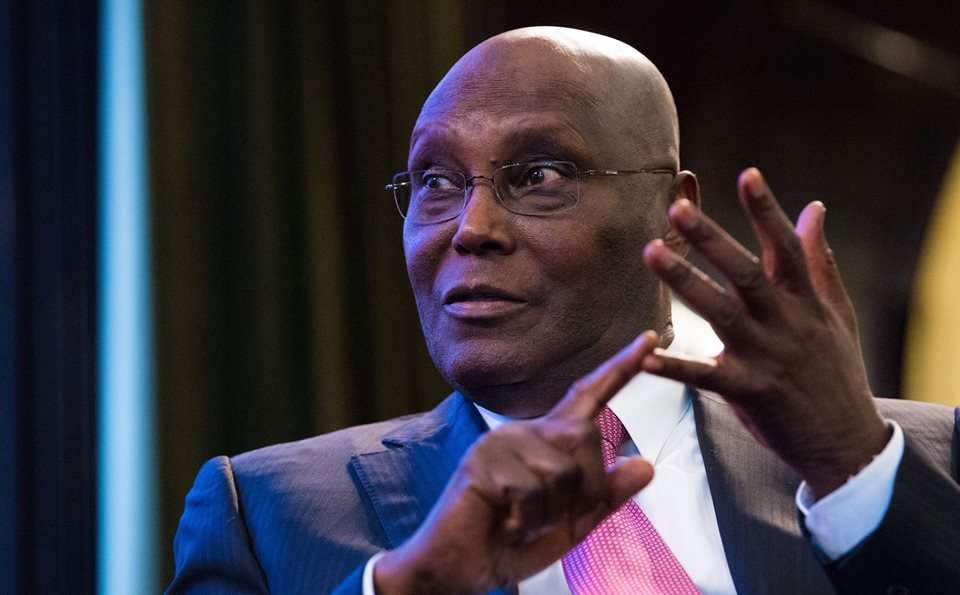On Wednesday, the Presidential Electoral Petition Tribunal affirmed Bola Ahmed Tinubu’s victory in the 2023 presidential election as conducted and announced by the Independent National Electoral Commission (INEC).
Recall that the Labour Party (LP) and its presidential candidate, Peter Obi, along with the Peoples Democratic Party (PDP) challenged the results of the 2023 presidential election in an effort to have Bola Tinubu’s eligibility as a candidate revoked due to allegations made against him.
According to research by WITHIN NIGERIA, the 2015 presidential election was the only one of the Independent National Electoral Commission’s (INEC) seven presidential elections to have its results uncontested by the candidate’s running mate or other rivals.
Further research revealed that Atiku Abubakar and previous president Muhammadu Buhari were the major petitioners in seven of the elections. While Atiku was the major petitioner in 2019, 2023, and he was a petitioner in 2007, when he ran as a candidate for the now-defunct Action Congress, Buhari was the main petitioner in 2003, 2007, and 2011.
Since the restoration of civil government, all presidential election petitions have been rejected because there is either no or very little evidence to support the claims made in the petitions. The most recent ruling issued by the Presidential Electoral Petition Court (PEPC) judges would not only be added to the list of electoral cases but would also advance the nation’s political and legal landscape.
Atiku Abubakar, the Peoples Democratic Party’s (PDP) presidential nominee, had lost three times at the tribunal, WITHIN NIGERIA learnt as the presidential election petitions court dismissed all count claims against Bola Tinubu.
Here are the three occasions where Atiku Abubakar contested election results and lost;
Atiku Abubakar versus Umar Musa Yar’Adua
After the 2007 presidential election was declared to have been won by Umar Musa Yar’Adua of the Peoples Democratic Party, Muhammadu Buhari of the Congress for Progressive Change and Atiku Abubakar of the Action Congress of Nigeria went to the Presidential Electoral Petition Court to contest the results.
In order to appeal the contentious ruling of the Presidential Elections Petitions Tribunal, which was presided over by Justice James Ogebe, Alhaji Abubakar Atiku’s attorneys filed a notice of appeal today at the Supreme Court of Nigeria’s registry.
The Independent National Electoral Commission (INEC), Jonathan Goodluck, the People’s Democratic Party (PDP), Professor Maurice Iwu, the Chairman of INEC, and 804 other people are included in the notice of appeal.
Despite claims that the 2007 general elections were rigged, Yar’adua was able to hold onto power thanks to the tribunal’s ruling. At the Presidential Electoral Petition Court, Umar Musa Yar’Adua defeated Atiku Abubakar.
Atiku Abubakar versus Muhammadu Buhari
Atiku Abubakar of the Peoples Democratic Party (PDP) went before the Presidential Electoral Petition Court to contest the results after Muhammadu Buhari, the presidential candidate of the All Progressives Congress (APC), was declared the victor of the 2015 presidential election.
The main opposition candidate’s appeal to reverse the outcome of Muhammadu Buhari’s reelection as president in the presidential election held in February was denied by Nigeria’s Supreme Court, which confirmed the PEPC’s decision.
The election tribunal received Atiku Abubakar’s initial complaint, which it dismissed last month. The former vice president’s desire to lead the most populous nation in Africa is probably ended after Tuesday’s decision.
Atiku’s appeal was unanimously dismissed by the Supreme Court as “lacking merit,” stating in a brief statement that it will later provide a more thorough justification for its judgment.
Atiku said that Nigeria’s judiciary had been “sabotaged and undermined,” but he also acknowledged that his attempt to challenge the verdict in court had failed. “I must accept that the judicial route I chose to take, as a democrat, has come to a conclusion,” Abubakar stated in a statement. The Nigerian people must decide whether justice was served.
Atiku Abubakar versus Bola Ahmed Tinubu
Atiku Abubakar of the Peoples Democratic Party (PDP) also went to the Presidential Electoral Petition Court to contest the results after Bola Tinubu, the presidential candidate of the All Progressives Congress (APC), was declared the victor of the 2023 presidential election.
The All Progressives Congress (APC), which is currently in power, was accused of electoral fraud in contested elections held in February, according to the PEPC.
The tribunal dismissed the opposition’s attempt to overturn Bola Ahmed Tinubu’s victory in the presidential election, saying, “This petition is hereby declared unmeritorious.”
The difficulties arose during one of the nation’s most closely contested elections, in which the former governor of Lagos, Tinubu, won with 37% of the vote, defeating Peter Obi of the Labour Party and Atiku Abubakar of the People’s Democratic Party (PDP) to win the presidency of Africa’s most populous country.
Due to alleged anomalies, Abubakar and Obi have requested that the court declare the election void.
Judges disproved all of the allegations made by Labour Party candidate Obi, including allegations of fraud, that the election commission violated the law, and that Tinubu was ineligible to run.
The court was also giving notice of its decision regarding a second petition from an opposition party, which is also anticipated to be denied. Similar grievances regarding the February 25 election results are laid forth in a similar petition submitted by PDP candidate Abubakar.
In Nigeria, which had a history of electoral fraud and returned to democracy in 1999 after nearly three decades of military government, no judicial challenge to the results of a presidential election has ever been successful.
